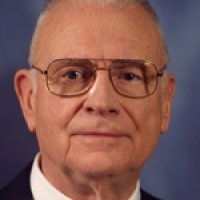A Vision for Madagascar: A Path from Poverty to Growth

His Excellency Marc Ravalomanana, the reform-minded president of Madagascar, today told a Woodrow Wilson Center Director's Forum that his country stands ready to fully join the global marketplace while also preserving its unique environmental heritage and bringing prosperity to its citizens. "My optimism for Madagascar is not false," said President Ravalomanana. "I'm going to describe a country where the strengths outnumber weaknesses and we believe in our ability to succeed."
Wilson Center Director Lee Hamilton praised President Ravalomanana for his commitment to greater accountability and better governance in Madagascar, which has just been formally recognized by the African Union. "His support for the private sector and his facilitation of increased trade and investment has helped steer the country towards economic development," said Mr. Hamilton. Mr. Hamilton also lauded President Ravalomanana's pursuit of improved education and health for Madagascar's people as well as protection of its natural resources.
Wanda Nesbitt, U.S. Ambassador to Madagascar, next called President Ravalomanana "one of the most remarkable men I've met in the course of my career." Ambassador Nesbitt praised President Ravalomanana for his commitment to poverty reduction, and she also credited his government with aiding the success of many USAID integrated health and environment programs in Madagascar. "He is a man of vision, integrity, and determination," she said. "I truly believe that Madagascar stands on the brink of having the opportunity to bring about changes that have not been possible for 25 years."
President Ravalomanana then related both his own story of economic success as well as his plan for Madagascar's economic reform. He began a family business as a street vendor of yogurt—an endeavor that he built into the most successful agro-business corporation in Madagascar. "Madagascar is a country of great opportunity," he said, with a very high literacy rate, abundant and diverse natural resources, and an emphasis on family life and the work ethic.
President Ravalomanana then outlined what he called four important policy ideas that Madagascar must implement in order to become fully economically competitive: (1) improvement of its roads; (2) elimination of government corruption; (3) reform of civil law to efficiently and effectively respond to credit, finance, and other business issues; and (4) military improvement to guarantee security.
"This is not to suggest that we will not be working hard on other parts of the country," added President Ravalomanana, citing his commitment to improve education, health, and environmental issues in Madagascar. "But we understand that we cannot do everything all at once. We must set specific goals and achievable objectives. If we are successful in making progress in the four areas mentioned today, I know the citizens in Madagascar will have confidence in our ability to achieve even greater things in the future."
Finally, President Ravalomanana stressed his strong belief in the value of international partnerships and investments. Madagascar, he said, has benefited greatly from support from the United States and the European Union, international financial institutions and environmental organizations, and private companies. "But we need more investment," President Ravalomanana said. "Our country will be fully involved in the global economy and home to vital businesses: pharmaceuticals, technology, finance, banking, agriculture, textiles, precious metals, environmental, tourism, and many more."
"Madagascar is a work-in-progress," the President added. "But what benefits our citizens also benefits those who invest in us."
Speakers

Founder, the Center on Congress at Indiana University; Vice Chair, 9/11 Commission
Hosted By

Environmental Change and Security Program
The Environmental Change and Security Program (ECSP) explores the connections between environmental change, health, and population dynamics and their links to conflict, human insecurity, and foreign policy. Read more
